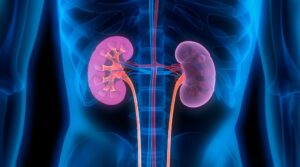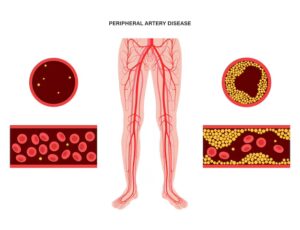What is less often discussed is that many commonly prescribed drugs have weight gain as a potential side effect, when you begin a new medication, you’re usually focused on the benefits — symptom control, disease management, improving quality of life. For some people, this effect is mild and manageable; for others, it can be clinically significant, affecting self-esteem, metabolic health, and adherence. At Big Apple Medical Care, we believe in empowering patients with knowledge—so here’s a closer look at how medications can lead to weight gain, which drugs are most likely to do so, and what you can do (with your care team) to prevent or reduce that risk.
Why Do Some Medications Cause Weight Gain?
Weight homeostasis is a delicate balance of energy intake (how much you eat) and energy expenditure (how much your body uses). Medications may disrupt that balance in a number of ways. Below are some of the primary mechanisms:
Increased appetite or hunger signaling
Some drugs stimulate appetite or alter brain centers that regulate satiety, causing you to eat more than usual.
Altered metabolism or energy expenditure
Some medications lower your basal metabolic rate (the energy your body burns at rest), or reduce mitochondrial energy use, so your body burns fewer calories even without changes in activity.
Shifts in fat distribution and storage
Certain drugs change how and where your body stores fat—favoring visceral (deep abdominal) fat or accumulation of fat in the liver (ectopic fat).
Hormonal and endocrine effects
Many medications influence hormone systems (e.g. insulin, cortisol, thyroid, sex hormones). Some raise insulin resistance or increase fat deposition.
Fluid retention and edema
Certain medications cause the body to hold onto more salt and water (sodium retention), leading to weight gain that is partly from fluid, not fat.
Changes in gut microbiome
Emerging research suggests that some medications—especially antipsychotics—may affect the gut microbiome in ways that favor weight gain.
Leptin and central signaling
A recent study in antipsychotic-induced obesity implicates leptin, a hormone produced by fat cells, as a driver rather than just a passenger in drug-associated weight gain.
Because drugs may affect one or more of these pathways, weight gain can sometimes occur even if caloric intake seems unchanged.
Which Medications Are Commonly Implicated?
Not every medication causes weight gain, and individual responses vary. But certain classes and agents are more notorious. Below is a non-exhaustive overview:
| Drug Class / Type | Examples | Mechanisms / Notes |
|---|---|---|
| Antipsychotics (especially “atypical”) | Olanzapine, risperidone, quetiapine, clozapine | Among the highest risk for weight gain, through appetite stimulation, metabolic changes, and endocrine effects. |
| Antidepressants | Mirtazapine, paroxetine, tricyclics (amitriptyline) | They often change hunger/satiety circuits or metabolism. Note: some antidepressants (e.g. bupropion) may have less risk or even weight-neutral/weight loss effects in some people. |
| Mood stabilizers / antiepileptics | Lithium, valproate, carbamazepine | May increase appetite or alter energy metabolism. |
| Steroids / glucocorticoids | Prednisone, dexamethasone | Known to trigger weight gain (through appetite, fluid retention, fat redistribution). |
| Insulin / insulin analogues / sulfonylureas / TZDs | Insulin, pioglitazone, rosiglitazone | By promoting glucose uptake/storage and fat deposition. |
| Hormonal contraceptives / hormone replacement therapy | Some progestin-containing contraceptives, estrogen/progesterone combinations | May modestly influence weight by altering fluid balance or appetite. |
| Antihistamines (first-generation) | Diphenhydramine, chlorpheniramine | Some evidence suggests they can increase appetite or sedation, reducing activity. |
It’s important to emphasize: just because a medication is associated with weight gain doesn’t mean everyone will gain weight, and the degree depends on individual factors (genetics, lifestyle, other medications, etc.).
Why It Matters: Beyond the Scale
Weight gain triggered by medication isn’t just a cosmetic concern. It has real health and behavioral consequences:
-
It can worsen or trigger metabolic syndrome, type 2 diabetes, dyslipidemia, hypertension, sleep apnea, and nonalcoholic fatty liver disease.
-
It may reduce patient motivation or willingness to continue needed therapy (nonadherence).
-
Gaining weight may worsen self-image, mood, or psychiatric symptoms (especially in mental health patients).
-
Weight gain, if rapid, may lead to more visceral fat, which carries a higher risk of cardiovascular and metabolic disease than subcutaneous fat.
In short, it’s not just “a side effect”—it’s a clinical factor that should be addressed proactively.
What You Can Do to Prevent or Mitigate Medication-Related Weight Gain
The good news: many strategies can reduce the likelihood or impact of medication-induced weight gain. But it requires early planning and collaboration with your medical team. Here’s a roadmap.
Be proactive: ask before you start
If your provider is considering a drug that carries risk of weight gain, ask:
-
Are there alternative medications with lower weight-gain risk?
-
What is the expected magnitude of weight change, and over what time?
-
What monitoring plan should we follow?
-
What preventive strategies can I adopt from day one?
For example, among antidepressants, some are more weight-friendly (e.g. bupropion) than others.
Monitor weight and habits closely
-
Weigh yourself regularly (e.g. weekly), ideally under consistent conditions (morning, fasted).
-
Keep a food journal or use a diet-tracking app to maintain awareness of caloric intake.
-
Monitor other metrics: waist circumference, mood, hunger levels, activity, etc.
Early detection of an upward trend lets you intervene faster.
Adjust diet intelligently
-
Emphasize protein and fiber: These increase satiety and slow digestion.
-
Watch portion sizes and avoid “mindless eating.”
-
Opt for lower glycemic index carbohydrates and whole grains (versus refined carbs).
-
Limit sodium intake to reduce fluid retention.
-
Replace high-calorie snacks with vegetables, fruits, or air-popped popcorn.
-
Stay hydrated: sometimes thirst is misinterpreted as hunger.
-
Avoid late-night snacking or eating too close to bedtime.
Working with a registered dietitian can help tailor a meal plan compatible with your medication regimen.
Exercise & increase non-exercise activity
-
Aerobic exercise (walking, jogging, cycling) helps burn calories and improves insulin sensitivity.
-
Resistance training (weights, bodyweight exercises) helps preserve lean mass and boost basal metabolic rate.
-
Don’t neglect NEAT (non-exercise activity thermogenesis) — daily movements (standing, walking, fidgeting) matter.
-
Schedule regular activity and make movement part of your routine.
Behavioral and Cognitive Strategies
-
Practice mindful eating — slow down, chew well, pause during meals; this helps you recognize fullness.
-
Use stimulus control: avoid keeping tempting food within reach.
-
Cognitive behavioral therapy (CBT) or motivational interviewing may help manage emotional eating or drug-related appetite surges.
-
Set realistic goals (e.g. prevent further gain, or limit gain to minimal amounts) rather than aiming for aggressive loss during a vulnerable period.
Work with your physician / pharmacist
-
Ask whether dose adjustment or switching to another agent is feasible.
-
In some cases, add-on medications (if safe and indicated) may offset weight gain.
-
Monitor for developing metabolic side effects: glucose, lipids, blood pressure.
-
Sometimes short-term “bridging” strategies are applied while risk period is highest.
Consider medically supervised approaches (if necessary)
-
If weight gain is significant and lifestyle strategies alone are insufficient, discuss with your physician whether weight-loss medications (e.g. GLP-1 receptor agonists) may be considered.
-
In extreme cases, referral to an obesity specialist or endocrinologist may be appropriate.
Realistic Expectations & Patient Stories
It’s important to acknowledge two truths:
-
Not all weight gain is avoidable — sometimes the benefit of the medication outweighs the side effect.
-
Even with good strategies, small gains may occur — the key is to keep them minimal and manageable.
Here’s a plausible case example to illustrate:
Jane, aged 42, began treatment with olanzapine for a bipolar disorder episode. She knew in advance about weight-gain risks, so she committed to monthly weigh-ins, weekly walks, and a structured low-glycemic diet. Over six months, instead of a potential 8–10 kg gain (which is typical for this drug in some patients), she gained only 2 kg. Her metabolic panel remained stable, and she reported good symptom control. Her proactive approach and close collaboration with her psychiatrist and dietitian made all the difference.
This kind of mitigation, rather than perfect prevention, is often the realistic goal.
When Weight Gain Becomes Alarming: Red Flags & When to Act
While mild weight shifts are expected, the following warrant urgent attention and possible intervention:
-
Rapid weight gain of several kilograms in a short time (e.g. >3 kg in a month).
-
New onset of high blood sugar, high cholesterol, or hypertension.
-
Development of signs of fluid overload (swelling of extremities, shortness of breath).
-
Worsening self-image, mood, or medication nonadherence due to weight concerns.
If any of these occur, contact your healthcare provider promptly to reevaluate the treatment plan and consider modifications.
Sample Preventive Plan (To Be Customized)
Below is a sample 6-month plan that a patient starting a high-risk drug might adopt. Always tailor to individual health status and comorbidities.
| Month | Focus | Suggested Actions |
|---|---|---|
| Month 0 (pre-start) | Planning & baseline | Record baseline weight, waist circumference, labs (glucose, lipids). Learn about diet & exercise strategies. |
| Month 1 | Early monitoring | Weekly weigh-ins. Begin 3 aerobic sessions/week. Meet dietitian to set a meal plan. |
| Month 2 | Behavioral reinforcement | Add resistance training. Begin mindful eating and food journaling. Review sodium intake. |
| Month 3 | Adjustment & review | Review weight trend; if upward drift, intensify activity or tweak diet. Discuss dose/agent adjustment with physician. |
| Month 4–6 | Maintenance & adaptation | Maintain routine. If gain > target, consider escalation (e.g. pharmacologic or specialist consult). |
Key Takeaways & Final Thoughts
-
Medication-associated weight gain is common but not inevitable. Understanding how and why it occurs gives you power to act.
-
Prevention is easier than reversal. Starting healthy habits early, in parallel with your medication, gives you the best chance of success.
-
You are not alone. Engage your medical team—physician, pharmacist, dietitian—to monitor and adjust as needed.
-
Track carefully. Regular monitoring (weight, labs, habits) lets small changes be caught early.
-
Lifestyle interventions remain foundational. Diet, physical activity, behavioral strategies — they remain your first line.
-
Stay flexible. If weight gain becomes problematic, reexamine medication choice or add supportive measures.
At Big Apple Medical Care, we understand that managing chronic conditions often means balancing risks and benefits. Weight gain from medication may feel discouraging, but it doesn’t have to derail your treatment or health goals. With vigilance, planning, and partnership with your care team, you can minimize unwanted gains while still achieving therapeutic outcomes. If you or your loved ones are starting a medication and are concerned about weight, we’re here to help — reach out to schedule a consultation, get personalized plans, or ask questions along the way.







